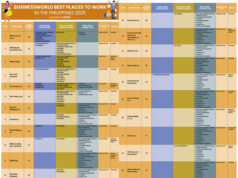Technology as a solution to a healthier society
Every new age of progress is marked by groundbreaking developments in the field of medicine and health care. Whether it was the discovery of bacteria, the invention of penicillin, or the simple significance of good hygiene, human ingenuity has always sought to improve general health and well-being of people.
Today’s age of information is unique in the way that, given the rapid pace of technology, there are countless new solutions to problems in human health, and justifiably so due to the varied and complex new problems brought about by the changed world.
The World Economic Forum stated it thus, “First and foremost is the pressing issue of seeking sustainability: from our ageing demographics (by 2050, one-fifth of the global population will be over 60 and two-thirds of babies born today could live to 100) to the increasing burden of noncommunicable chronic diseases (NCDs), which already represent 75% of health care expenses, while the rising cost of health care will contribute to an overall direct and indirect loss of $47 trillion for the world’s gross domestic product by 2030.”
“Second, the acceleration of science and discovery with, for example, the cost of genome sequencing falling below $1,000, and over 100,000 new drugs in the pipeline, some of which have already had a profound impact in developing cures, particularly in cancer, but are increasingly associated with unaffordable costs,” the organization said in its Health and Healthcare in the Fourth Industrial Revolution report.
Treatments such as the recently approved cell therapy costs well over $1 million for one treatment for a single patient, making it an unfeasible option for many of the estimated 17 million new cases of cancer recorded worldwide in 2018.
“Third, the progress in technology spanning the digitalization of health and health care to social media, Internet of things (IoT), wearables, sensors, big data, artificial intelligence (AI), augmented reality (AR), nanotechnology, robotics and 3D printing, will radically transform society, increase interconnectivity and break the structures of health care systems,” the organization added.
An age of medical discoveries
Such new problems deserve new innovative methods of approach. Fortunately, the emergence of so many revolutionary fields in science has a profound effect on the medical world.
Specific examples of technological breakthroughs changing medicine include genetic engineering — especially genome editing — regenerative biology and medicine, tissue engineering, cancer genomics and immunotherapy, precision medicine, microbiome, optical imaging, optogenetics and brain machine interface technology. In addition, the surge of data science with big data analytics, digital technologies, and AI will have a transformative impact on health and medicine.
Meanwhile, some diseases are on the brink of being eradicated completely. Gene-editing technologies have the potential to cure genetic diseases, such as sickle cell disease and cystic fibrosis. Germline editing has the potential to cure diseases with permanent intergenerational changes, while somatic genome editing can treat, control, and possibly cure acquired diseases.
In areas like public health, advances such as precision medicine can guide health care decisions and can show great promise for prevention of diseases, particularly by identifying predisposed or high-risk patients for specific conditions and diseases that could be readily prevented with early detection, appropriate screening or through lifestyle changes.
The report added that health care data captured in real-time can generate new knowledge and evidence to better understand patterns of health and disease, perpetuating further innovation.
“The integration of big data, analytics, new technology and connectivity inside and outside clinical encounters, coupled with payer activity and cost, pharmaceutical, and medical products R&D data, and patient behavior, will help us better predict the outcome of diseases as well as drivers of health, including social determinants which are often underappreciated,” the World Economic Forum said.
The report predicted that in the near future, developments in health care will necessitate a reshaping of the landscape towards the formation of a seamless “continuum of care,” which will do away with the clinic-centered point of care models. Greater emphasis will be placed on prevention and early intervention.
Furthermore, a more consumer-minded approach will deliver health care to each person within their own ecosystem, placing a greater impact on the patients themselves.
“Despite the mounting challenges facing health and health care delivery, our council was able to provide promising insights and perspectives, thanks to all its members’ collective expertise. The combined advances in discovery and clinical sciences, data science and technology and their convergence through the Fourth Industrial Revolution are paving the way for unprecedented changes that will profoundly transform health and health care to become much more connected, efficient, preemptive, precise, democratized and affordable,” the organization said.
“Not only will this improve the health of individuals, it will also reduce imbalances across geographies while boosting economies and spurring employment, a key factor in the wellness and health of society,” it added. — Bjorn Biel M. Beltran



